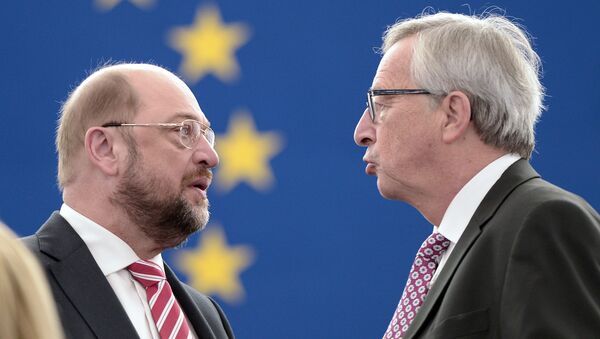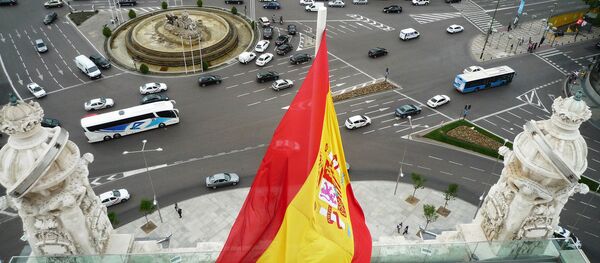The Commission — led by Jean-Claude Juncker — is set to impose a series of penalties on both countries July 27 — the first time ever member states have had such sanctions imposed.
The penalties include a combination of fines and withholding of funds. Although MEPs in the European Parliament are not part of the sanctions process, it can demand "structural dialogue" over some of the sanctions — effectively halting, or at least reducing, some of them.
EU imposing sanctions & Fines on Spain and Portugal for not dealing with their deficits. Expect calls for exit referendums.
— Philbo Bird (@bootneckrecce) July 12, 2016
Political Pressure
The President of the European Parliament, Martin Schulz told the executive that it would raise the issue of the withholding of millions of dollars of EU structural funds with the Commission. This is the first time this situation has arisen and goes to the heart of power in Brussels, Lisbon and Madrid.
Portugal's finance minister, Mario Centeno sent a letter July 18 to the Commission saying the fines would be unfair as the country is "on the right road to eliminate the excessive deficit" and that it would have "a highly negative impact" on the Portuguese people's support for the European project.
Spain has asked Brussels for two additional years to reduce the deficit. Its finance minister, Luis de Guindos wants the EU to allow it to reduce the deficit to 3 percent of GDP in 2018 instead of 2016.
'The Commission is kidnapped by anti-European interests'
— rui borges (@homo_viator) July 20, 2016
20 economists against EU sanctions on Portugal and Spainhttps://t.co/LAq4U1C2GY
Both Spain and Portugal have faced tough economic conditions since 2009 and both are struggling with austerity measures and sluggish economic growth. The economy and deficits are both high on the political agenda, with both countries' MEPs under pressure to take on the Commission over its decision.




